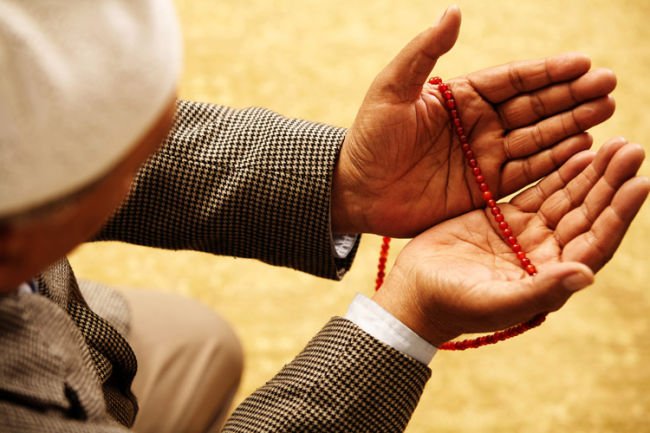Answer
Short Answer:
- The guidance sought is usually felt within the heart, rather than sensed by any of our physical senses, or dreamed while in a state of unconsciousness.
- Muslims should always be striving to purify the state of their inner senses in order to be more capable of interpreting and receiving Allah’s guidance.
______________________________________
Salam Dear Unica,
Thank you for your question and for contacting Ask About Islam.
Istikharah: How to Read the Answer?
I will start my answer by giving you a brief definition of what Istikharah is about and then move on to a vital point that is both more profound and more holistic in outlook.
The basic meaning of the word istikharah is “seeking guidance.”
In Islam, this is specifically used to refer to a special supplication that Muslims are encouraged to make either when they are faced with a choice, or when they are about to undertake a certain endeavor.
The spirit of the supplication is one in which the guidance and the blessings of God are sought.
How to Pray Istikharah?
According to the hadith in which this supplication is mentioned, the Prophet Muhammad said that the best way to ask for guidance was to pray two rak`ahs (units of prayer), and then say the supplication, which can be roughly translated as follows:
O Allah, I consult You through Your knowledge, and I seek strength through Your power, and ask of Your great bounty; for You are Capable whereas I am not, and You know and I do not, and You are the Knower of hidden things.
O Allah, if You know that this matter/choice is good for me in respect of my religion, my livelihood, and the consequences of my affairs; (or he said “the sooner or the later of my affairs”) then ordain it for me, make it easy for me, and bless it for me.
But if You know this matter (and name it) to be bad for my religion, my livelihood, or the consequences of my affairs; (or he said “the sooner or the later of my affairs”) then turn it away from me, and turn me away from it, and grant me power to do good whatever it may be, and cause me to be contented with it.
The wording of the supplication is such that what is sought is guidance to what is best, not only in a worldly sense, but what is best “in respect of religion,” which means that which will enhance and improve one’s relationship with God.
Tawheed
Having said that, in order to understand the concept of Istikharah, it is important to comprehend a certain point in the Islamic creed—namely, the belief that Allah, or God, is Omnipotent and the Most Wise.
In essence, when a Muslim says the supplication for guidance, he or she is putting his or her absolute and unquestioning trust in Allah, believing that because He is the One Who created, He knows what is best for His creation. This trust is built on the belief in the wisdom of Allah and His omnipotence.
To reach a point where absolute trust is placed in the Creator, a Muslim must consciously give up his or her own desires and trust that he or she will find goodness, and indeed what is best, in that which Allah has ordained.
This acceptance gives the Muslim peace of mind, in that he or she will never rail at his or her destiny, no matter how “bad” it may seem to be. The Prophet Muhammad (peace be upon him) said in a hadith (tradition):
Whoever makes Istikharah will never fail.
This confidence both requires and triggers the patience of the believer.
Having complete faith in that God can only choose goodness for the believer makes forbearance easier—because His guidance is the best.
The believer’s trust in seeking Allah’s guidance
You ask how a Muslim can recognize Allah’s will. Logically, this requires a two-way relationship. It is the believer’s trust and sincerity in seeking Allah’s guidance that allows for ease in “finding” that guidance and goodness therein. In the Quran, Allah says what means:
{And when My servants question you concerning Me, then surely I am near. I answer the prayer of the suppliant when he cries unto Me. So let them hear My call and let them trust in Me, in order that they may be led aright.} (Quran 2:186)
This does not necessarily mean that the supplicant will dream of Allah’s will, as some believe. Although some people say that they have experienced dreams that helped them make up their mind after praying Istikharah, this is not what a Muslim should be looking out for.
Guidance will come to him or her in a more subtle form, where he or she will say the prayer and then be confident that what will happen will be what is best. If there is a decision that needs to be made, the Muslim should try to decide what seems to be best after saying the Istikharah supplication and also after asking for advice from people he or she trusts.
Guidance is usually felt within the heart
Because the relationship with God is one that deeply involves the heart, soul, and mind of the Muslim, the guidance that is sought is usually felt within the heart, rather than sensed by any of our physical senses, or dreamed while in a state of unconsciousness.
Therefore, Muslims should always be striving to purify the state of their inner senses in order to be more capable of interpreting and receiving Allah’s guidance. The general rule is that the closer you are to Allah, the easier it is to read His signs and understand His guidance.
You rightly mention in your question that Istikharah is used when a Muslim is faced with a difficult decision.
Istikharah in smallest possible matters
However, to be absolutely accurate, because Istikharah is a general supplication for goodness and guidance, the Prophet Muhammad (peace and blessings be upon him) advised that Muslims should seek it in the smallest possible matters.
This is because a Muslim should always seek what is best for him or her in both this world and the next throughout his or her whole life.
For a Muslim, every event and deed is connected and counts.
I hope this answer helps you, Unica. If you have any more queries regarding this or any other Islamic topic, please do not hesitate to write to us.
Thank you and salam.
(From Ask About Islam archives)
Please continue feeding your curiosity, and find more info in the following links:
At a Crossroad? Learn Why Istikharah Prayer Is Important For You



